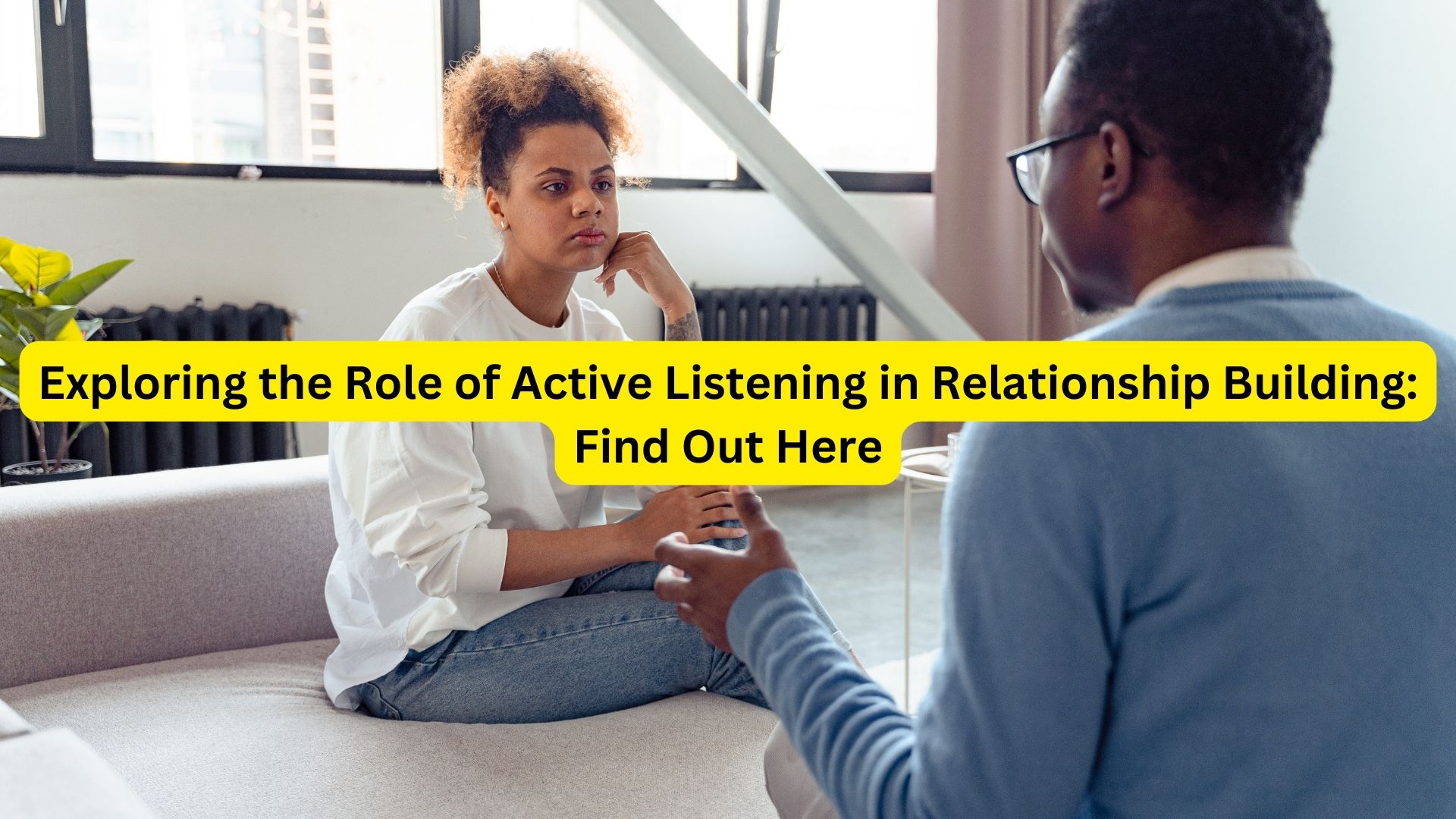
In today’s fast-paced world, establishing and maintaining meaningful relationships can present a challenge. Amidst constant distractions and digital noise, one of the most potent tools at our disposal, active listening, is often overlooked. Active listening is not just a skill; it’s a vital component for building deeper connections with others. In this article, we will explore how the practice of active listening can contribute to meaningful relationships.
Active listening is a communication technique that goes beyond mere hearing of words. It involves wholeheartedly concentrating, comprehending, responding to, and retaining what the other person is conveying. In a world where individuals are frequently preoccupied with their thoughts or distracted by screens, active listening forms the basis for genuine and meaningful relationships.
Active Listening Fosters Empathy: By giving someone your undivided attention and genuinely comprehending their words and emotions, you demonstrate care for their feelings and experiences. Empathy serves as the cornerstone of any meaningful relationship, allowing individuals to connect deeply, share joys and sorrows without judgment, and establish trust.
Active Listening Promotes Effective Communication: Misunderstandings and conflicts often arise from ineffective communication. Active listening involves not only hearing words but also discerning non-verbal cues like body language and tone of voice. This enables a more comprehensive understanding of the other person’s message, reducing the likelihood of miscommunication. Effective communication, in turn, is vital for conflict resolution and building stronger bonds.
Active Listening Encourages Reciprocity: When you actively listen, you set a positive example for others to follow. People are more likely to reciprocate by giving you their full attention when they perceive that you value their input. This fosters a cycle of mutual respect and understanding that strengthens relationships over time.
Active Listening Helps Discover Shared Interests and Values: As you listen to others, you gain insight into their beliefs, passions, and aspirations. This allows you to identify common ground and shared values, crucial for meaningful connections. Shared interests or goals create a sense of camaraderie and unity, fostering lasting relationships.
Active Listening Enhances Problem-Solving Skills: In any relationship, conflicts and challenges are inevitable. Active listening not only improves understanding of issues but also aids in devising more effective solutions. This problem-solving ability is a valuable asset in personal and professional relationships, demonstrating commitment to finding resolutions and improving the connection.
Active Listening Promotes Self-Awareness: Engaging in active listening makes you more attuned to your own thoughts, emotions, and reactions. This self-awareness is vital for personal growth and self-improvement, positively impacting relationships. By understanding your own triggers and biases, you can navigate conversations effectively and avoid unnecessary conflicts.
In a world teeming with distractions, practicing active listening can be the key to nurturing deeper, more meaningful relationships that withstand the test of time. So, the next time you engage in a conversation, remember the transformative power of active listening.
Also Read
Unlocking Career Growth: Six Ways Meditation Benefits Your Professional Journey
